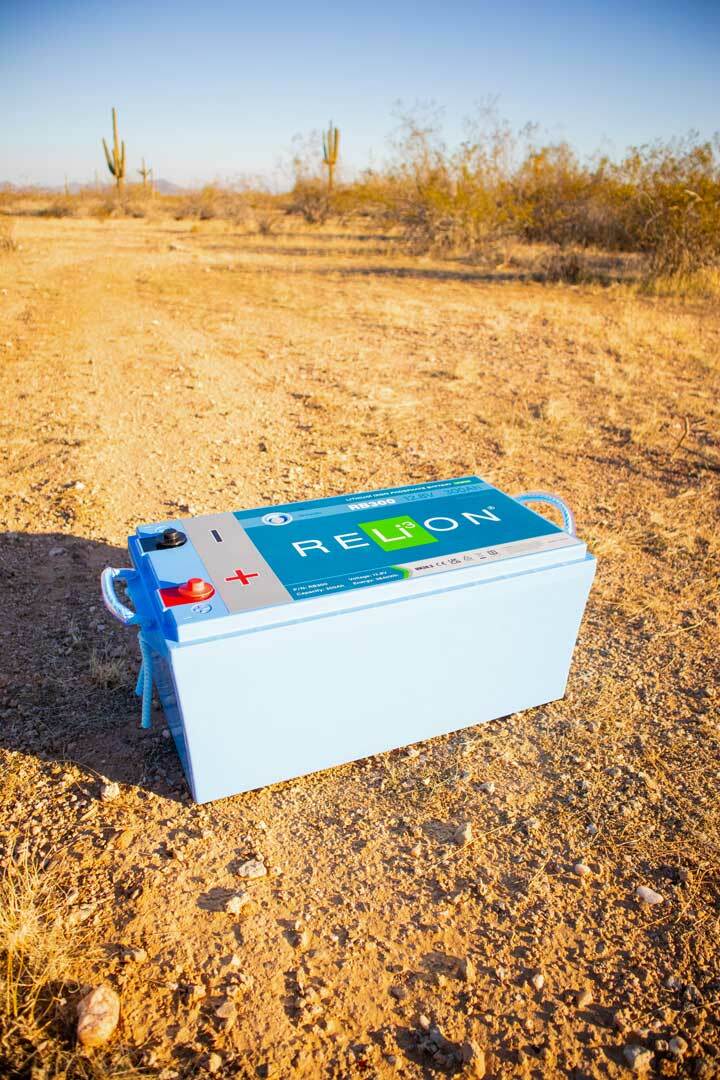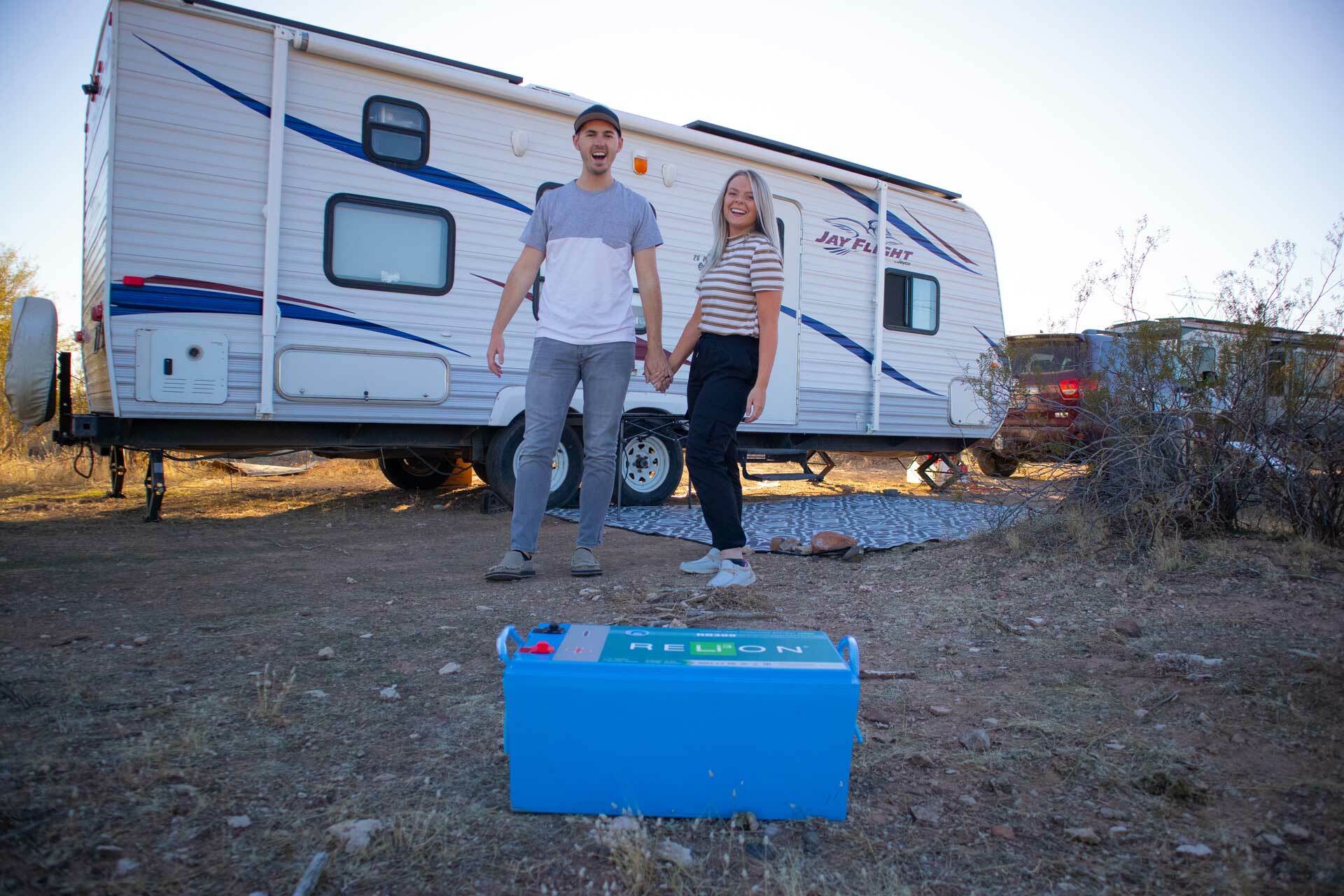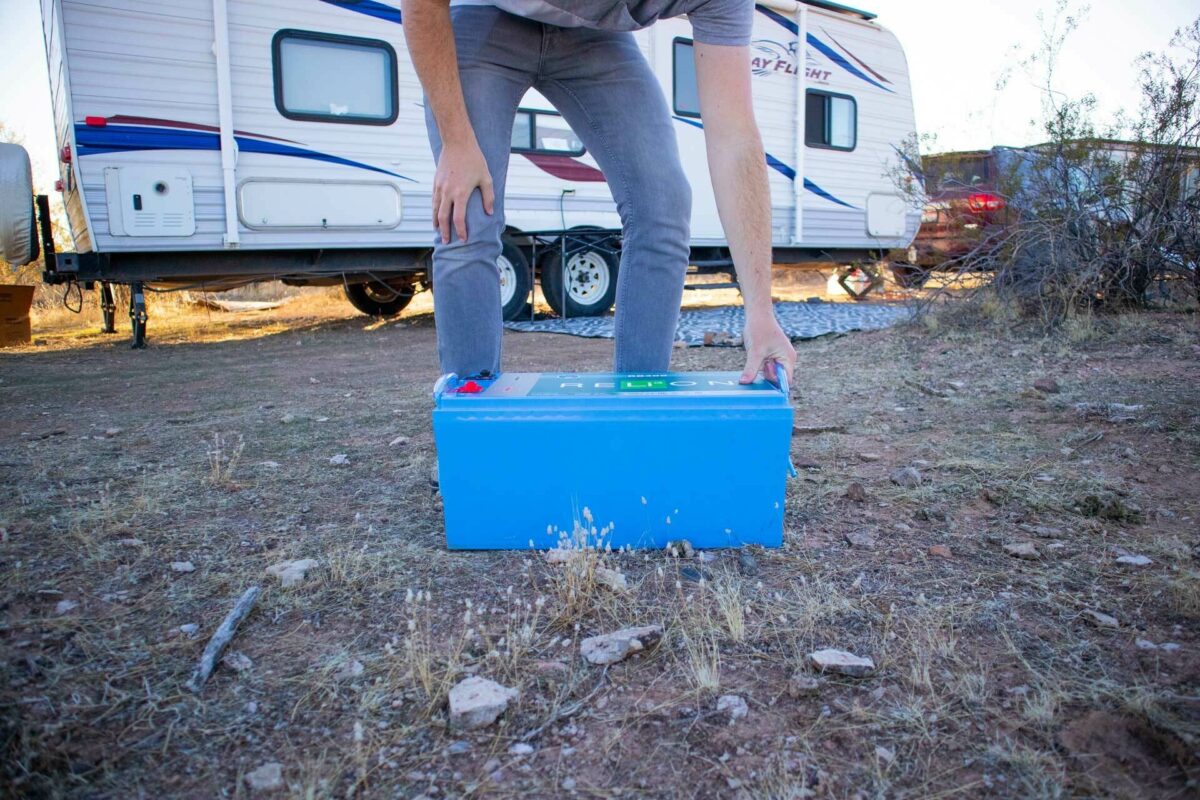Are you ready to hit the open road in your RV? Whether you're a weekend warrior or a full-time nomad, ensuring your RV is equipped with the right battery system is crucial for a comfortable and worry-free experience off the grid. With a plethora of options available, selecting the best battery system can be daunting. Here's a comprehensive guide to help you navigate through the considerations and find the perfect power solution for your RV.
Assess Your Power Needs
Before diving into the world of battery systems, take some time to assess your power requirements. Consider the devices and appliances you'll be using in your RV, such as lights, a microwave, a refrigerator, a TV, and electronics. Make a list and estimate their power consumption in watts, as well as the average daily usage hours. You can use this free calculator to help you determine your usage. This assessment will give you a clear idea of your energy needs and help you choose a battery system with the right capacity.

Explore Battery Types
RV battery systems generally fall into two main categories: lead-acid batteries and lithium batteries. Each type has its pros and cons, so let's take a closer look:
- Lead-Acid Batteries: These batteries generally require the lowest upfront investment, but also come with the shortest lifespan, lowest depth of discharge, heaviest weight, and the most frequent replacements. Traditional lead-acid batteries come in two varieties: flooded lead-acid (FLA) and sealed lead-acid (SLA). FLA batteries require periodic maintenance, including checking water levels, while SLA batteries require a bit less maintenance. A type of sealed lead-acid battery, Absorbent Glass Mat (AGM) batteries offer lower maintenance and somewhat better performance in cold temperatures than traditional lead-acid batteries.
- Lithium Batteries: Lithium-ion batteries are the latest innovation in RV power systems, offering high energy density, lightweight design, and long lifespan. A single lithium battery lasts 10 times longer than its lead-acid counterpart on average. Although they come with a higher upfront cost, lithium batteries provide faster charging, deeper discharges, and a longer cycle life compared to lead-acid batteries. As a result of their longer lifespan, lithium batteries do not need to be replaced as often as lead-acid batteries, resulting in significant cost savings long-term. Lithium batteries also maximize the use of small spaces due to their greater power and energy capacity - all with a lower footprint than lead-acid batteries. They also do not emit toxic fumes and are therefore safer in a wider range of locations. It is important to also note that not all lithium batteries are created equal. Lithium iron phosphate batteries like RELiON’s are the most environmentally friendly and non-toxic, particularly in comparison to lithium cobalt-based battery chemistries such as NMC, LCO, and NCA.

Consider Key Factors
When choosing a battery system for your RV, make sure to consider the following key factors:
- Capacity: Battery capacity is measured in both ampere-hours (Ah) as well as watt-hours (Wh) or kilowatt-hours (kWh) and indicates the amount of energy the battery can store. Energy is the measure of a battery’s power over time. Choose a battery system with sufficient capacity to meet your daily energy requirements, with some buffer for unexpected situations. One important note to keep in mind is that many lead-acid batteries have a ‘rated’ capacity that is much higher than the actual, or usable, capacity. This is because lead-acid batteries cannot be discharged more than 50 percent at a time, unlike lithium batteries, most of which can be discharged up to about 100 percent of their rated capacity.
- Cycle Life: This is the number of charge-discharge cycles a battery can handle before its capacity diminishes significantly, which is crucial to know, especially for long-term RVers. Lithium batteries offer a higher cycle life compared to lead-acid batteries, making them a cost-effective choice in the long run. For example, RELiON lithium batteries cycle 3,500 times or more, and higher rates of discharge minimally affect cycle life. Lead-acid batteries, on the other hand, typically deliver only 300-500 cycles, as higher levels of discharge greatly reduce cycle life.
- Size and Weight: Space and weight are limited in an RV, so make sure to select a battery system that fits within your available space and weight requirements. Consider the physical dimensions and weight of the batteries, as well as any additional components such as inverters and charge controllers. RELiON lithium batteries typically weigh one-third less than traditional flooded, AGM, or GEL lead-acid batteries, in addition to providing more power.
- Charging Sources: Consider how you'll recharge your batteries while on the road. Common charging sources include shore power hookups, solar panels, generators, and alternators. Make sure that your battery system is compatible with your chosen charging sources.
- Temperature Performance: Battery performance can be affected by temperature extremes, so select a battery system that can operate effectively in the wide range of temperatures you expect to experience during your travels. For example, RELiON has carefully engineered its Low Temperature (LT) Series lithium batteries, which can charge at temperatures down to -20°C (-4°F).
- Cost: While upfront cost is a significant consideration, it's essential to consider the overall value of the battery system, taking into account factors such as lifespan, maintenance requirements, and performance.
Choosing the best battery system for your RV involves careful consideration of your power needs, battery types, capacity, cycle life, charging sources, size, weight, temperature performance, and cost. By evaluating these factors and conducting thorough research, you can make an informed decision that ensures a reliable and efficient power supply for your adventures on the road. If you have any questions about which battery system is best for your camper van, skoolie, trailer, or other RV, get in touch with an expert at RELiON.
